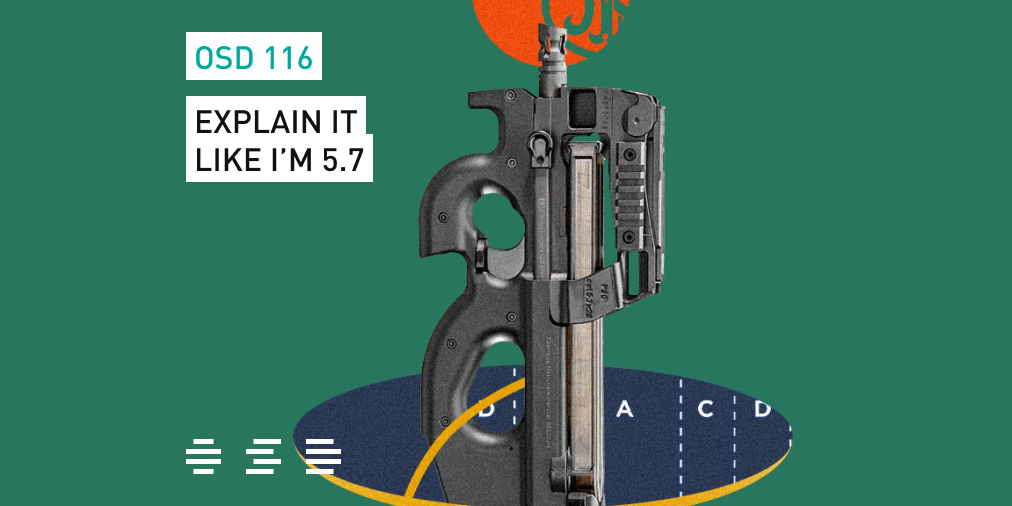Today’s going to be a bit of an explainer. With Texas on the verge of eliminating the need for carry permits (although that is by no means a done deal yet — follow /r/TexasGuns for updates), permitless carry (a.k.a. constitutional carry) has been a hot topic.
We watched several hours of the permitless carry bill’s hearing in the Texas Senate, and noticed a few themes to the opposition. As you’d expect, they echoed the themes you hear about this stuff generally. The good news is that they’re based on a simple set of false assumptions. Let’s break them down.
Without carry permits, criminals will carry guns
The strawman version of this concern is obviously fairly silly, but when people use this argument, often they’re trying to gesture at a deterrent effect. “Sure criminals won’t mind breaking one more law, but this’ll at least make them think twice about the risk they’re running.”
The interesting thing about this is that you can see people swap positions in real-time on what they believe about deterrence. Folks who support permitless carry may often support criminalization-as-deterrence in other contexts, and folks who promote carry restrictions often abhor deterrence as an approach to criminal justice in every other situation.
The good news here is that this has been well-studied, and there’s vanishingly little evidence that deterrence does much of anything. (Turns out that the likelihood of getting caught has a much stronger deterrent effect than the severity of the punishment.)
Untrained people carrying guns will cause accidental shootings
This is a really interesting one, because it makes a ton of intuitive sense. Of course eliminating training requirements for carry permits will be dangerous. Right? Why wouldn’t it?
In 2019, 486 people in the US died from unintentional shootings. In the same year, there were 173,040 deaths from unintentional injuries overall. Shootings, then, represent 0.2% — one in 500 — of the unintentional injury deaths in the country. This in a country with 423 million guns and where, if you exclude California and New York, 91% of the population already lives in either a shall-issue or permitless jurisdiction. Every accidental death is awful, but they are (fortunately) extreme statistical rarities.
Interestingly, mandatory training aren’t just unnecessary, they’re also ineffective. A strange combo, but that’s what experience bears out. Don’t get us wrong here: training is awesome. Everybody who uses a gun should invest in the best training they can find, and should take this stuff seriously. But “sit in this classroom and listen to a state-mandated curriculum” doesn’t have a good track record in any other context, does it? People will take this stuff as seriously as the culture tells them to, and we should encourage as much voluntary training as possible. But there’s little evidence that a state-mandated training course impacts people’s actual, real-life behavior.
Police won’t know who’s a criminal
The last theme goes something like this: “Today, if police encounter someone with a gun, they can check them out, verify their permit, and make sure they’re not committing any crimes. In a world with permitless carry, they’d have no way to look into the person.”
The proximate problem with that is that it’s not actually true that someone carrying a gun with a permit is thereby subject to roadside fishing expeditions. The broader problem, though, is a philosophical one: it’s status quo bias. Police can’t (in principle) investigate someone who’s just walking down the street. They can’t (in principle) pull you over and shake you down for no reason. Both of those things would undoubtedly help them catch criminals who today go free. But it’s not done because we’re used to it not being done. Just because we’re used to the idea that a permit is a lever for increased police scrutiny doesn’t mean that it’s reasonable. Instead, the standard is:
We don’t investigate people without reasonable suspicion.
Legal, normal behavior does not constitute reasonable suspicion.
Carrying a gun is legal, normal behavior.
Therefore it is off the table as a foot-in-the-door for police, irrespective of any proximate crimefighting utility it may provide.
It also bears mention that every police confrontation is an opportunity for things to go awry, either violently or in a courtroom. The fewer unnecessary confrontations, the better for everybody.
Conclusion
These are rational arguments, but as always, reason is not where this discussion really happens. This is a domain where us humans make up our minds, and then we make up the reasons. So remember: be cool and be friendly.
This week’s links
The Manurhin MR73 revolver is back
James Reeves of TFB, aka @gunshorts, on this tank of a revolver.
Lucky Gunner on the M1 Carbine
Modern take on a not-very-modern gun.
“USS Monterey seizes illicit weapons in the North Arabian Sea”
The cache of weapons included dozens of advanced Russian-made anti-tank guided missiles, thousands of Chinese Type 56 assault rifles, and hundreds of PKM machine guns, sniper rifles and rocket-propelled grenades launchers. Other weapon components included advanced optical sights.
Ugh, sorry everyone, the OSD meetup is cancelled.
Washington Post: “Black gun owners are often portrayed negatively. One photographer set out to change that.”
Great photo essay.
“Artist David Roytman trades paintbrush for assault rifle”
Jackson Pollock but with guns.
“If you hear the brrrrtttt, then the pilot wasn’t aiming for you.”
They stuck a camera on the target at an A-10 training range.
CS Weapons
Really cool guide to the weapons of Counter-Strike.
OSD office hours
If you’re a new gun owner, thinking about becoming one, or know someone who is, come to OSD office hours. It’s a free 30-minute video call with an OSD team member to ask any and all your questions.
Support
Like what we’re doing? You can support us at the link below.
Merch
And check out our merch. Top-quality hats, t-shirts, and patches with an OSD flair.


